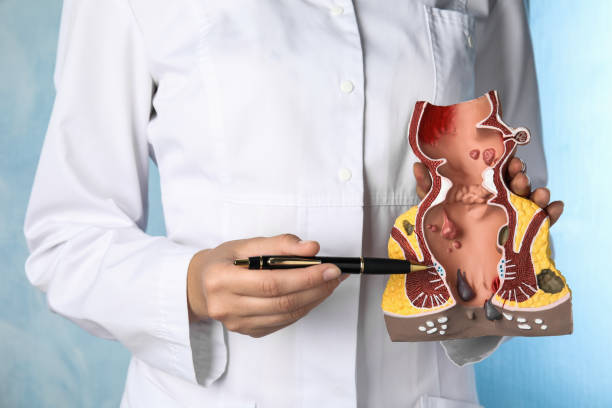Hemorrhoids, also known as piles, are swollen veins in the rectal and anal area that can cause discomfort, itching, and even pain. While they are common, especially among adults, the good news is that they can often be prevented naturally through lifestyle changes and healthy habits. Here’s your ultimate guide to keeping hemorrhoids at bay:
1. Eat a High-Fiber Diet
Fiber is your best friend when it comes to preventing hemorrhoids. It helps soften stools, making them easier to pass and reducing the need to strain.

What to Include:
- Fruits: Apples, pears, berries, oranges, guava, papaya.
- Vegetables: Broccoli, spinach, carrots, sweet potatoes, ladies finger, ash gourd.
- Whole Grains: Oats, quinoa, brown rice, whole wheat bread.
- Legumes: Lentils, chickpeas, black beans.
Aim for at least 25-30 grams of fiber per day. If you’re not used to a high-fiber diet, increase your intake gradually to avoid bloating or gas.
2. Stay Hydrated
Proper hydration is essential for soft stools. Dehydration can lead to constipation, which increases the risk of hemorrhoids.

Tips:
- Drink 8-10 glasses of water daily.
- Incorporate hydrating foods like cucumbers, watermelon, and soups.
- Limit caffeine and alcohol, which can dehydrate you.
3. Avoid Straining During Bowel Movements
Straining puts excessive pressure on rectal veins, increasing the likelihood of developing hemorrhoids.
How to Avoid Straining:
- Respond to the urge to go promptly; don’t delay.
- Avoid sitting on the toilet for extended periods.
- Use a small stool or footrest to elevate your legs slightly while sitting. This position mimics squatting and allows for easier bowel movements.
4. Maintain Regular Bowel Habits
Irregular bowel habits can lead to constipation, which is a primary cause of hemorrhoids.
What Helps:
- Stick to a consistent bathroom schedule.
- Use natural remedies like prunes or psyllium husk to promote regularity if needed.
5. Stay Physically Active
Exercise stimulates bowel function and reduces the risk of constipation.
Recommended Activities:
- Walking
- Yoga
- Swimming
- Light aerobic exercises
Avoid activities that involve heavy lifting or prolonged sitting, as these can increase pressure on the veins.
6. Maintain a Healthy Weight
Excess weight can put additional pressure on pelvic and rectal veins, increasing the risk of hemorrhoids.
Tips:
- Follow a balanced diet rich in vegetables, lean proteins, and whole grains.
- Engage in regular physical activity.
7. Wear Comfortable, Loose Clothing
Tight clothing can restrict blood flow around the rectal area, contributing to discomfort and irritation.
8. Avoid Prolonged Sitting
Sitting for long periods can increase pressure on the rectal area.
What to Do:
- Take breaks to stand or stretch every 30-60 minutes.
- Use a cushioned seat for added comfort if you must sit for long durations.
9. Prevent Constipation

Constipation is one of the leading causes of hemorrhoids. Prevent it with these remedies:
Natural Solutions:
- Incorporate prunes or psyllium husk into your diet.
- Limit processed and sugary foods.
- Stay consistent with your fiber and water intake.
10. Practice Good Hygiene
Keeping the anal area clean and dry helps prevent irritation and infection.
Hygiene Tips:
- Use unscented wipes or wash with lukewarm water after bowel movements.
- Pat dry gently with a soft towel; avoid rubbing.
- Avoid harsh soaps or fragranced products.
11. Try Natural Remedies
Certain natural remedies can help soothe the rectal area and reduce the risk of hemorrhoids:
- Aloe Vera Gel: Known for its anti-inflammatory properties.
- Witch Hazel: A natural astringent that reduces swelling.
- Coconut Oil: Can help moisturize and prevent irritation.
Preventing hemorrhoids naturally requires a combination of dietary changes, physical activity, and healthy habits. By making these simple adjustments, you can significantly reduce your risk and enjoy better digestive health.


